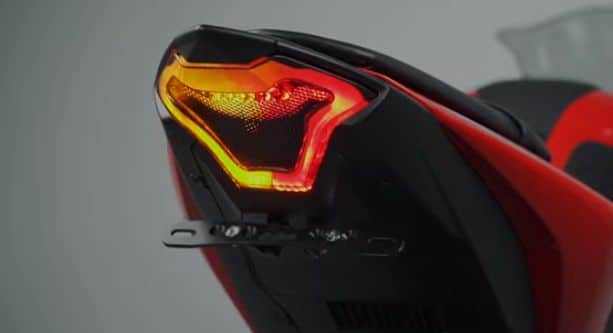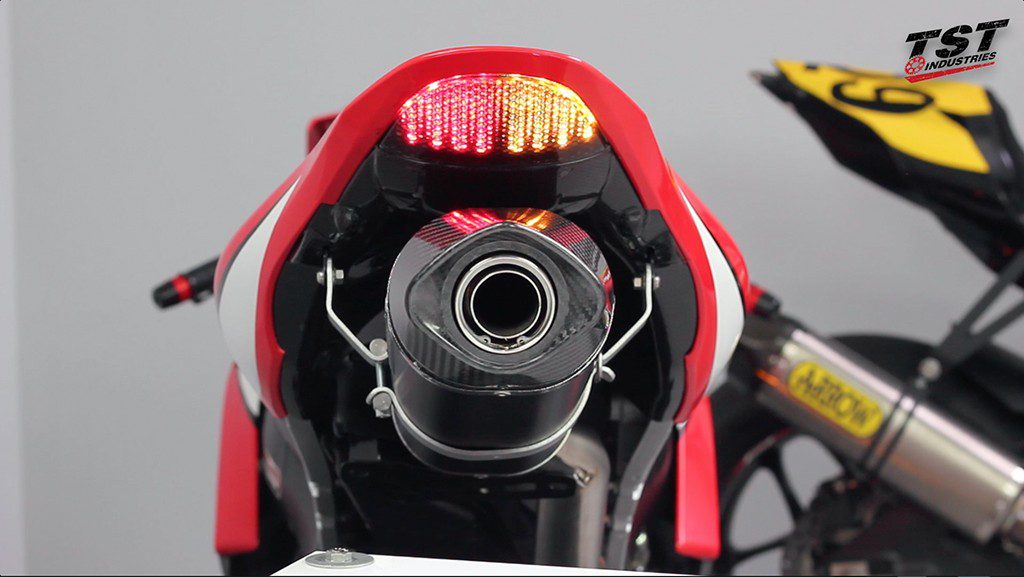Integrated tail lights’ legality depends on regional regulations and their compliance with safety standards. Always check local traffic laws before installing these lights on your vehicle.
Integrated tail lights are a popular customization for motorcycles and cars, combining the brake light, turn signals, and sometimes the license plate light into one unit. They provide a sleek, streamlined look compared to traditional multiple-light setups. Riders and drivers favor them for their aesthetic appeal, potentially improving vehicle visibility if designed well.
Nevertheless, safety concerns arise when these lights are not bright enough or when their integrated nature causes turn signals to be less distinguishable. Consequently, their legality varies globally, with some regions having strict standards on signal visibility and separation. It’s essential for vehicle owners to verify the compliance of integrated tail lights with their jurisdiction’s Department of Motor Vehicles (DMV) or equivalent authority to ensure road safety and avoid potential fines.
What Are Integrated Tail Lights?
Integrated tail lights are multifunctional units that combine brake lights, turn signals, and sometimes reverse lights into a single assembly. The main purpose of these lights is to improve aesthetics by offering a streamlined look to the rear of motorcycles and some cars, while also potentially enhancing visibility. By integrating all rear lighting functions, they reduce clutter on the vehicle’s bodywork.
The types of integrated tail lights vary, with some designs specifically tailored to fit certain motorcycle brands and models. Others are more universal, providing a one-size-fits-all solution. These lights come in various shapes, colors, and sizes, with LED being the most commonplace technology due to its energy efficiency and brightness. It’s crucial to note that the legality of these integrated systems can vary by jurisdiction, so it’s essential for vehicle owners to check their local road laws before installation.
Are Integrated Tail Lights Legal?
Integrated tail lights consolidate the brake light, turn signals, and sometimes the reverse lights into a single unit. This sleek, streamlined design is very popular among motorcycle and custom car enthusiasts. But the legality of integrated tail lights varies greatly depending on your location. Before you install these on your vehicle, checking with local DMV or transportation authorities is crucial to ensure compliance with regional regulations.
Safety and visibility concerns are paramount because tail lights play a critical role in communicating a vehicle’s actions to other drivers on the road. One argument against integrated tail lights is the potential for reduced visibility, as combining signals could make it harder for other drivers to recognize which signal is being activated, especially at a distance.
| Benefit | Description |
|---|---|
| Aesthetic Appeal | A more modern, streamlined look that attracts enthusiasts. |
| Customization | Allows for personalization of the vehicle’s rear lighting. |
| Weight Reduction | Potentially lighter than separate light assemblies. |
Factors To Consider
Integrated tail lights combine the brake, running, and signal lights into one unit for simplicity and style, especially popular among motorcycle enthusiasts. The legality varies by location, as traffic laws differ across states and countries. It’s crucial to consult local regulations before purchasing. Legality often hinges on factors like visibility, light color, and signal differentiation.
To guarantee legal installation, verify that the integrated tail light adheres to the DOT (Department of Transportation) standards or the equivalent in your country. Look for certification marks or ask the retailer about compliance. Installation should preserve all factory functions and angles prescribed by vehicle laws.
Compliance with laws post-installation involves regular checks. Ensure that all light components function correctly and that the light’s brightness is within the legal scope. Tail lights must remain clearly visible and discernible to other drivers, particularly the turn signals, which need to flash distinctively even in daylight.
| Aspect | Legal Requirement | Maintenance Tip |
|---|---|---|
| Visibility | Must be visible from regulation distances | Regularly clean lens for clarity |
| Color | Brake lights red, signals yellow/orange | Check for LED color fading |
| Signal Differentiation | Signals must be distinct from brake lights | Ensure flashing patterns are correct |

Credit: www.norton-motorsports.com
Frequently Asked Questions Of Are Integrated Tail Lights Legal
Are Integrated Tail Lights Legal In California?
Integrated tail lights are legal in California if they meet visibility and color requirements set by the California Vehicle Code.
What Does Integrated Tail Light Mean?
An integrated tail light combines brake, turn signal, and running lights into one unit on a vehicle, typically a motorcycle, for a streamlined look and functionality.
Are Integrated Turn Signals Legal In Florida?
Integrated turn signals are legal in Florida as long as they meet visibility and color requirements set by the state’s vehicle laws.
Are Clear Tail Lights Illegal In The Us?
Clear tail lights are not universally illegal in the US. Laws vary by state, so check local regulations before installing them on a vehicle. Some states require red tail lights.
Conclusion
Understanding the legality of integrated tail lights is vital for rider safety and compliance. Ensure you consult local regulations before installation or modification, as laws can vary widely. Keep your bike street-legal and stylish by being informed and responsible with your lighting choices.
Always prioritize safety on the road.


